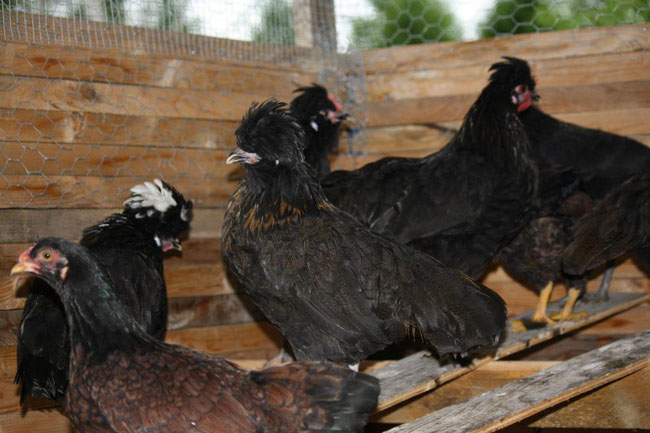Farm tales: Nothing goes to waste on our little hobby farm

By Jennifer Ashawasegai
ALBAN – Nothing is wasted on our little hobby farm. Food scraps, hay, straw and scrap wood are all recycled in some way to re-use in gardening or to condition poor soil.
For example, in the house, we compost all food scraps except for meat and fish items because we don’t want to attract extra creatures to our yard. To the extreme pleasure of the girls (hens), stale or dried bread goes into the chicken coop. They are very pleased to receive such tidbits and are pecking at bread crumbs almost before they hit the floor.
When we clean out the goat barn, which we do by hand – (you can’t even imagine the smell!) – the waste goes into a large pile and is mixed with soil and other composting materials. My husband Ken primarily looks after the rather large composting jobs.
And goats waste a lot of hay! Almost half of the hay from their feeders ends up on the barn floor or on the ground. I end up scooping up that hay before it gets dirty, and I put that in the chicken coop. It gets either tossed in with the litter on the floor, or placed into the nesting boxes.
Dirty litter in the chicken coop is taken out and placed in its own area to mellow out a little to allow the natural process of composting to happen. Chicken manure as a fertilizer is very high in nitrogen, which means it’s too strong to be added to soils or gardens undiluted or uncured.
Over the past summer, I grew a small garden and had the opportunity to use our composted materials. I found out that only the tomatoes liked the mixture, and it was probably a little too potent for the rest of my vegetables. My peppers and watermelon didn’t grow to their full potential. I realized, of course after the fact, they need less composted materials in their beds.
Scrap wood also doesn’t go to waste around our hobby farm. Scraps from the building of the barn, or any other project Ken works on, is used somewhere else. Last year, he had built octagonal forms placed around the base of the apple trees, so the composted materials would concentrate in the areas where they’re needed most.
I’m already looking forward to Spring because I’m hoping to acquire a few beehives to use for many purposes. Ken would like to use the bee pollen as there are many naturopathic uses for it. I would love the bees to pollinate the apple trees and the vegetables, plus use the honey in my kitchen and for goat milk soaps I will be making in the future.

